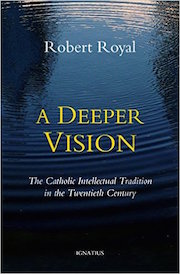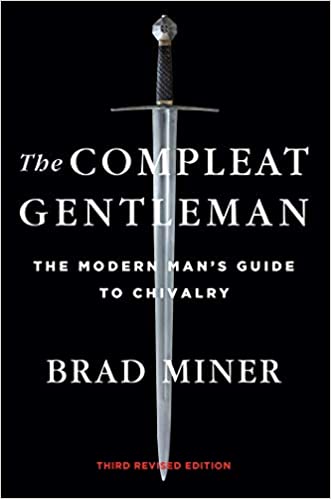Man, to be sure, is made of dust and clay; or, as we should say nowadays, he is of animal origin—which comes to the same thing. The Church is not unmindful of this, finding a warrant for it in the same passage of Genesis. Man, to be sure, is also a sinner. The Church does not cease to remind him of that fact. The self-esteem that she endeavors to instill into him. is not the outcome of a superficial and ingenuous view of the matter. Like Christ, she knows “what there is in man”. But she also knows that the lowliness of his origin in the flesh cannot detract from the sublimity of his vocation, and that, despite all the blemishes that sin may bring, that vocation is an abiding source of inalienable greatness. The Church thinks that this greatness must reveal itself even in the conditions of present-day life, as a fount of liberty and a principle of progress, the necessary retaliation upon the forces of evil. And she recognizes in the mystery of God-made-man the guarantee of our vocation and the final consecration of our greatness. Thus in her liturgy she can celebrate each day “the dignity of the human substance” even before rising to the contemplation of our rebirth.
These elementary truths of our faith seem commonplace today—though we neglect their implications all too often. It is difficult for us to imagine the disturbance they created in the soul of man in the ancient world. At the first tidings of them humanity was lifted on a wave of hope. It was stirred by vague premonitions that, at the recoil, sharpened its awareness of its state of misery. It became conscious of deliverance. To begin with, needless to say, it was not an external deliverance—not that social liberation which was to come, for instance, with the abolition of slavery. That liberation, which presupposed a large number of technical and economic conditions, was brought about slowly but surely under the influence of the Christian idea of man. “God”, says Origen, in his commentary on Saint John, “made all men in his own image, he molded them one by one.” But from the outset that idea had produced a more profound effect. Through it, man was freed, in his own eyes, from the ontological slavery with which Fate burdened him. The stars, in their unalterable courses, did not, after all, implacably control our destinies. Man, every man, no matter who, had a direct link with the Creator, the Ruler of the stars themselves. And lo, the countless Powers—gods, spirits, demons—who pinioned human life in the net of their tyrannical wills, weighing upon the soul with all their terrors, now crumbled into dust, and the sacred principle that had gone astray in them was rediscovered unified, purified and sublimated in God the deliverer! It was no longer a small and select company that, thanks to some secret means of escape, could break the charmed circle: it was mankind as a whole that found its night suddenly illumined and took cognizance of its royal liberty. No more circle! No more blind destiny! No more Moira! No more Fate! Transcendent God, God the “friend of men”, revealed in Jesus, opened for all a way that nothing would ever bar again. Hence that intense feeling of gladness and of radiant newness to be found everywhere in early Christian writings. It is much to be regretted that this literature for so many reasons, not all of which are insuperable, should be so remote from us today. What wealth and force our faith is forfeiting by its ignorance. . .















